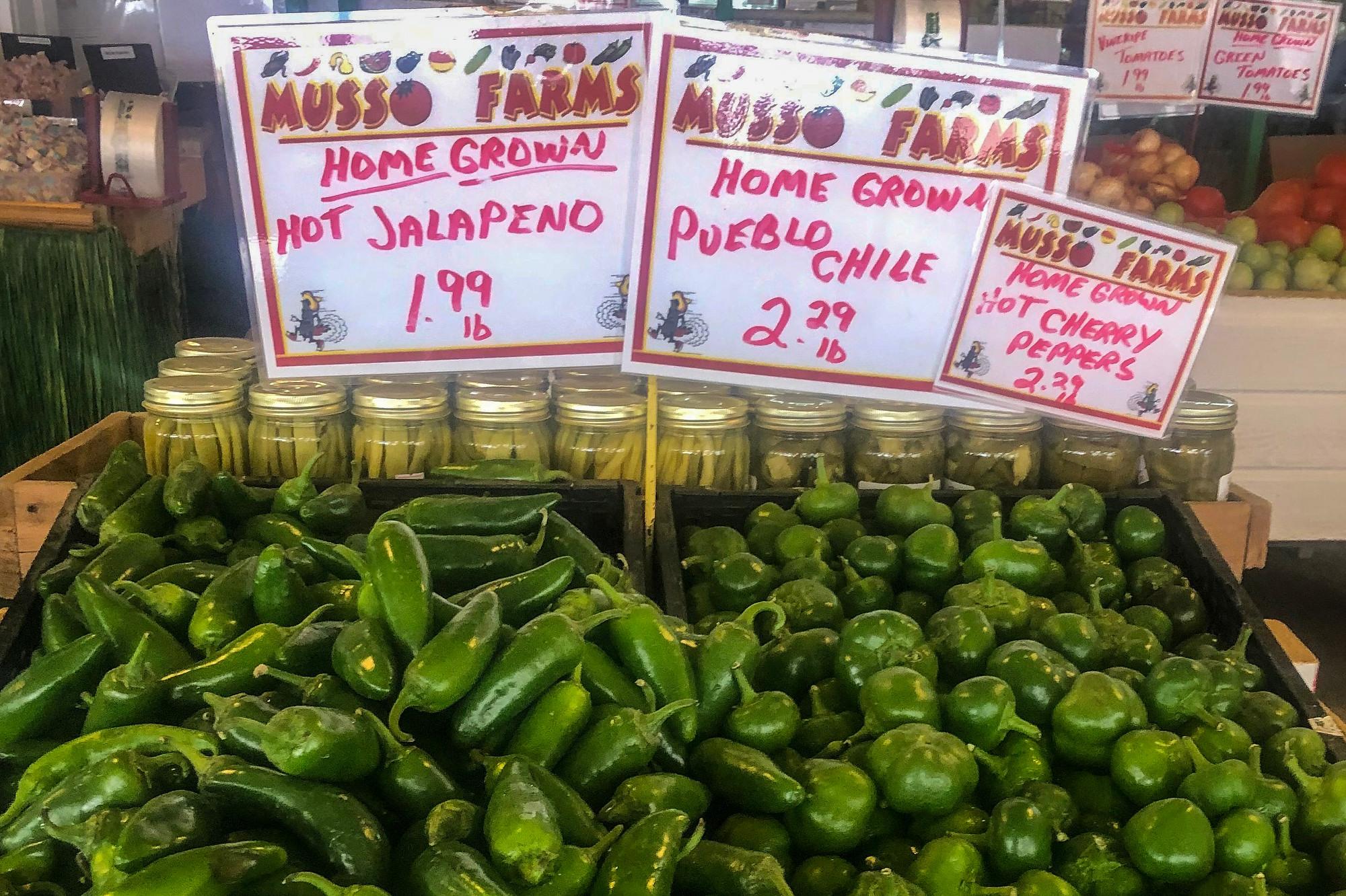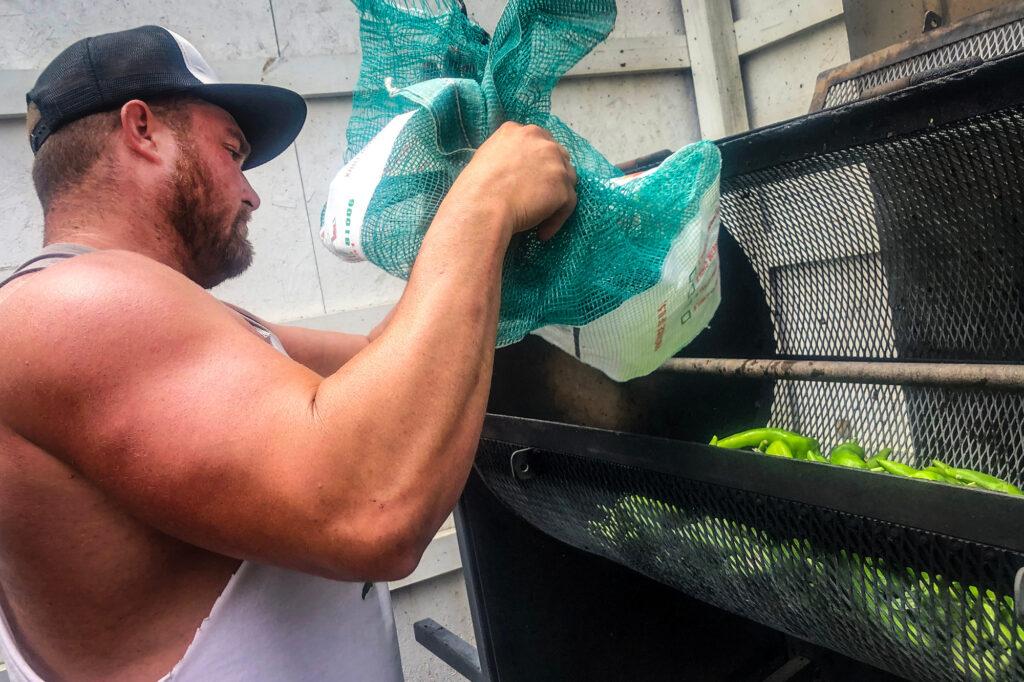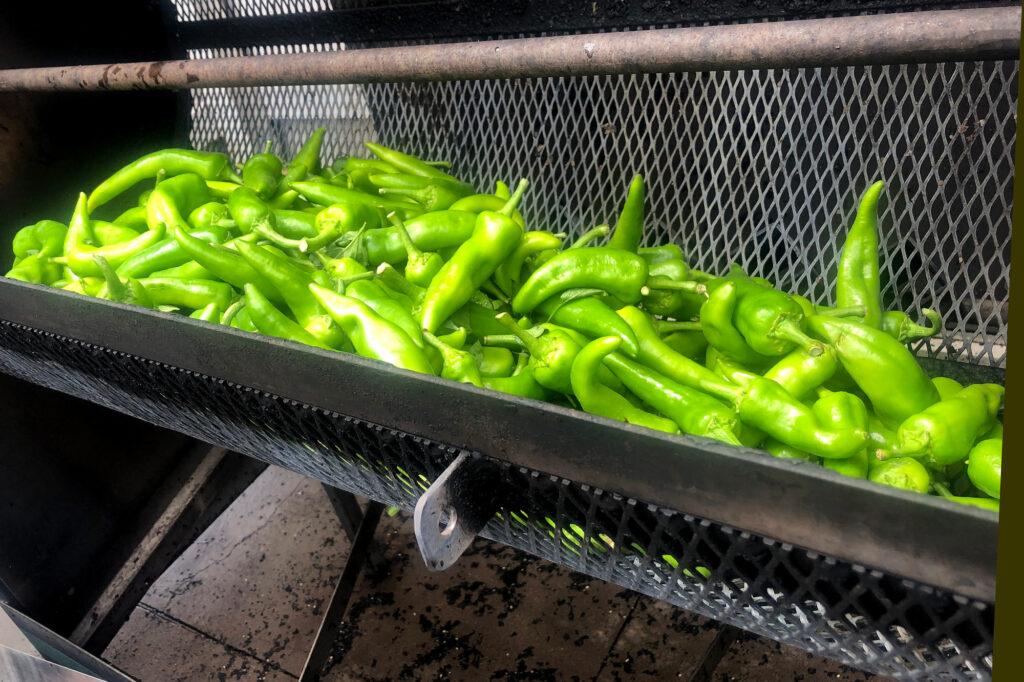
Drive east from downtown Pueblo and it’s not long before you’re in open country. Cottonwood trees line the expansive rolling hills and outdoor farm stands dot the rural landscape. That’s where you’ll find the dirt road that leads to Musso Farms.
The Mussos have been farming this land for five generations, ever since the family emigrated from Italy; the operation is now mostly in the hands of Rocky Musso and his father.
“You name the variety, we grow it,” Musso said on a quiet day this summer, surrounded by bushels of his early harvest. “We have the Pueblo chile, that's our most famous. It's a hot chile. The flavor is incredible if you like the heat.”
For people who don’t, there are baskets of mild peppers as well as Big Jims, large medium-hot chiles favored for chile rellenos.
“What everybody will do with [their chiles] is either take them home and roast it themselves. Or we roast it here for them so they can put it in their freezers and save it for the wintertime.”
Fall is chile harvest time in Pueblo, a crop the region is famous for. This weekend the city celebrates the 27th annual Chile and Frijole Festival. After scaling back the festival last year because of the pandemic, it’s returning now in full force, as the region celebrates its long history with its signature pepper.
On the busiest days at the farm stand, Musso said they can have about a dozen roasters fired up, their barrel-like cages spinning chiles over roaring gas flames. Under the outdoor awning where they work, the temperature reaches as high as 120 degrees.

Five minutes is about all it takes to turn a bushel of once-green chiles limp and blackened — and delicious. For his final step, Musso sprays the chiles with a water hose to clean off their charred skins.
The farm stands in Pueblo County are a community gathering spot. Even on a weekday, the Musso’s parking lot is full of cars. Old friends and neighbors and regular customers browse with people traveling to the area.
Inside the “Chile Room,” Erica Springer and her two-year-old daughter Betty checked out shelves packed with all sorts of chile-infused products, from honey to pasta.
Springer likes hot chiles, but she learned the hard way to tone it down after Betty was born.
“She was a couple months old and we did green chile and then she was up all night, because I was nursing and I never really ate spicy food like that before,” Springer recalled. “I was like, what's wrong with her? And then I went to the pediatrician and she's like, ‘Oh, it's what you ate.’”
For that season, Springer had to skip her favorite dynamite chiles and go with Pueblos to fit her daughter’s spice tolerance.
Springer lived all over the country before moving to Pueblo about ten years ago.
“There are so many welcoming people (here) and I thought there was a lot of new experiences,” she said of the region. “The culture, it's just so open and inviting.”

Still presiding over the farm stand, from his perch on a walker, is Rocky Musso’s grandfather, Carl. He lives so close by, the outdoor market is essentially in what used to be his backyard.
He took over the farm as a young man after his father lost a hand unloading a truckload of beets.
Even though Carl was the third generation of Musso to work the land, his father wasn’t happy with his choice. “He had a fit,” said Carl. “He said, ‘farming ain’t no good… it’s a good life, but too hard a life.’”
But a long lifetime later, Carl said he can’t imagine anywhere else he’d rather be. Earlier this year, county commissioners declared July 20 as Henry “Carl” Musso Day to honor him.
“I'm like a big old Cottonwood tree. I got roots down to water. It ain't going to move me.”
It’s a sense of belonging his grandson, Rocky Musso, understands well; he feels it every time he looks at the fields full of his family’s crops.
“To know, you had a big hand in doing that, and the enjoyment on people's faces when they're eating your produce, it really makes for a satisfying life,” he said.









